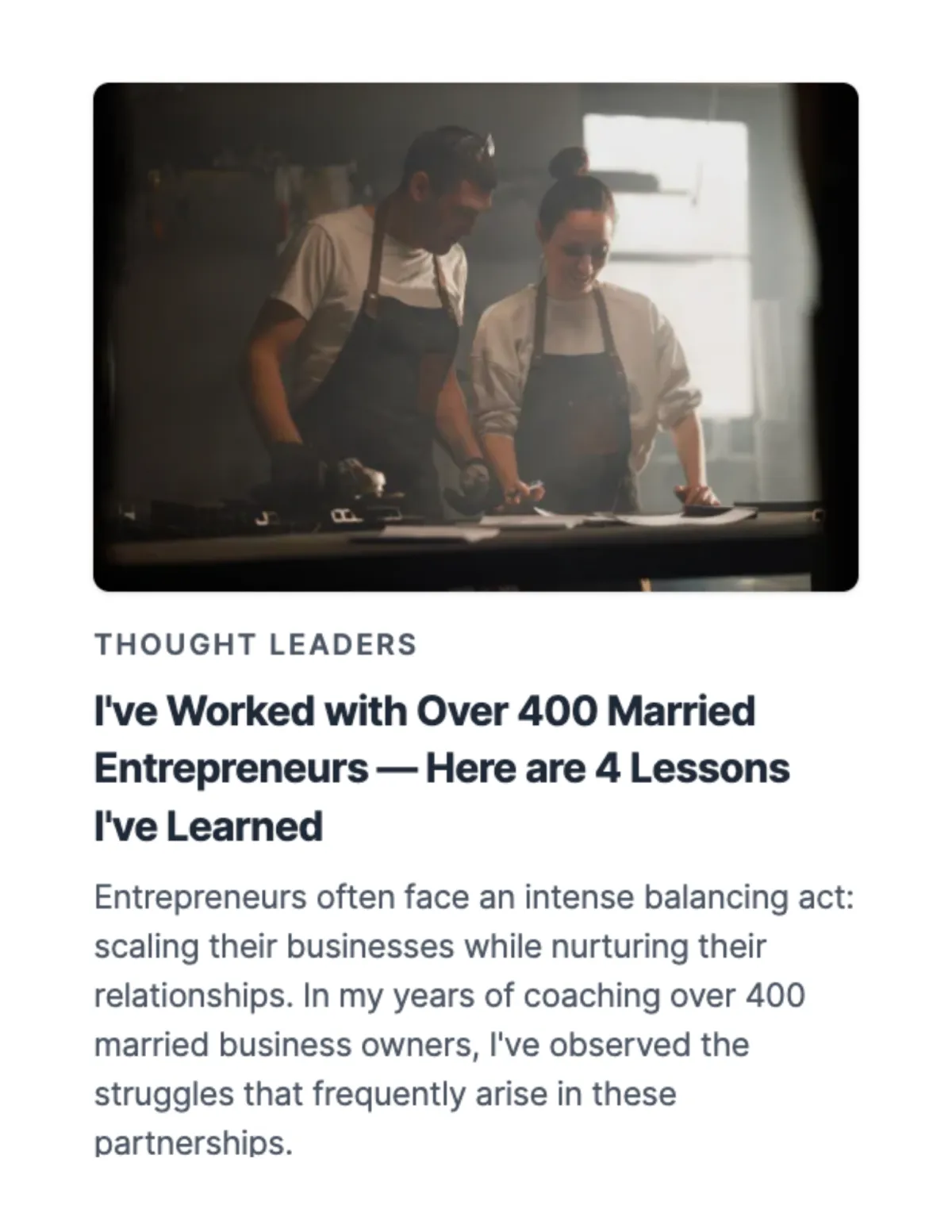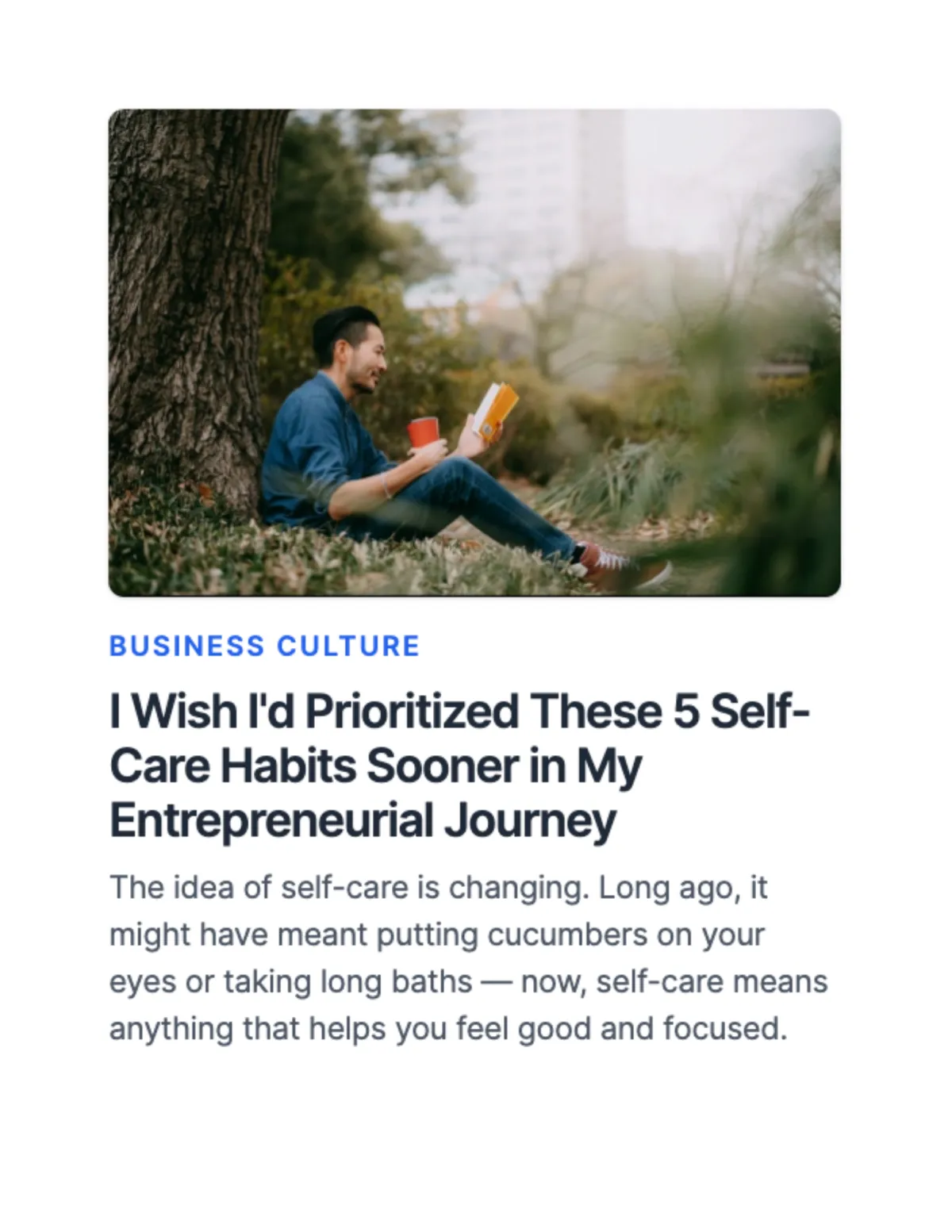Helping Founders Turn Visibility and Trust Into Predictable Revenue Through Authority Marketing and Fractional CMO Support.
If your brand is being seen but not converting, we’ll help you fix that fast—using SEO, PR, and high-converting messaging systems tailored to your market.
Trusted By:



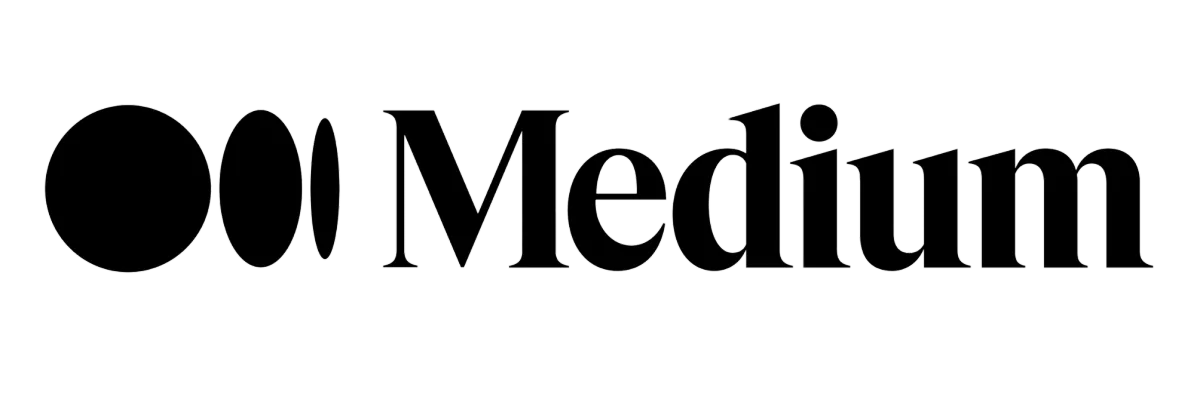
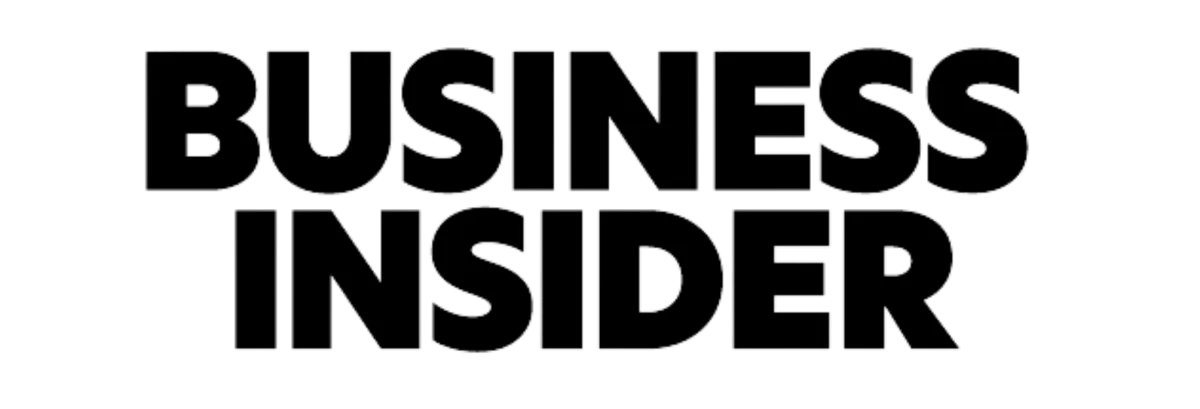
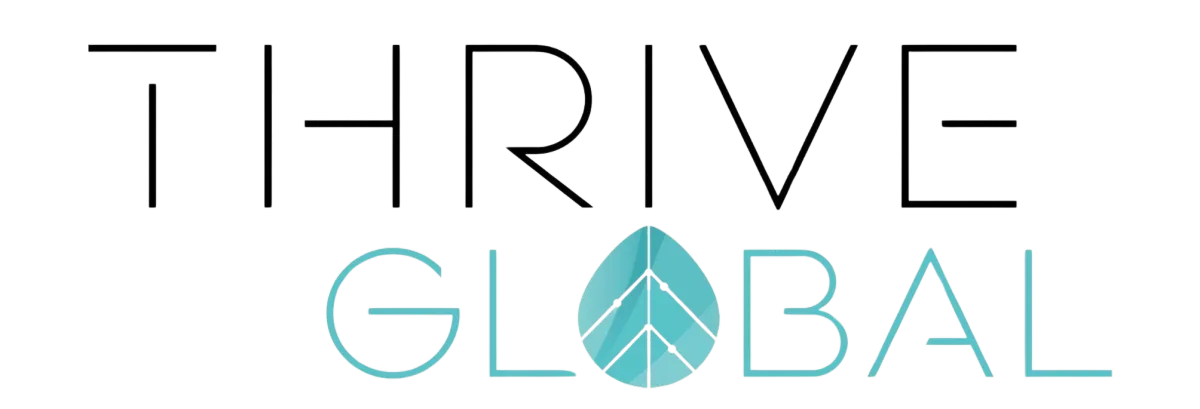




Find out exactly why your site isn’t ranking—and how to fix it fast.
Featured Thought Leader in Entrepreneur Magazine
His Thought Leadership extends to the pages of Entrepreneur Magazine, where he shares high-level insights on business strategy, marketing, leadership, psychology, and personal mastery—helping high-earning men break through limitations and achieve extraordinary success.

The Truth Behind Honest Communication in Relationships
The Shocking Reality: Your Partner Doesn’t Want Your Honesty
In relationships, we often hear that being honest is the best way to go. However, the truth can be more complicated. While lying can damage a relationship, being too honest can also cause harm. Many experts say that your partner might not want to hear everything that's on your mind, especially if it’s very critical.
Good communication requires honesty and care. Hitting your partner with negativity, even if you think it’s "honest," can damage their self-esteem and push you further apart. Instead of being harshly honest, try using communication patterns that are kind. Make your talks supportive. Aim to understand each other better.
Related: Why Pessimism in Love Leads to Emotional Solitude
How To Communicate in Relationships
In relationships, many people say that honesty is key. However, being honest doesn't mean you have to share every thought and feeling you have. Instead, it's important to balance truth and kindness. You should be open and clear with your partner, but also think about their feelings. Communicating openly can help strengthen your bond. By focusing on honesty and being aware of how your partner feels, you can build a healthy relationship based on trust and mutual respect.
Related: How To Reconnect and Communicate Better in Relationships
The Balancing Act: Truth vs. Tact
Mastering good communication is all about finding the right balance. You need to express your thoughts while remaining polite. It’s important to choose the right words and the best time to speak. You should pay attention to your tone of voice and body language. Also, consider how the other person feels.
For example, imagine telling your partner something is wrong with their outfit right before a big job interview. Even if you want to help, how you say it and when you say it can affect their confidence.
Instead of quickly sharing what you see or giving criticism, you can try this:
Choose the right time and place for serious talks.
Use "I" statements to express your feelings and needs without blaming your partner.
Pay attention to your tone of voice; staying calm can really help.
Be aware of your body language; keep your posture open and friendly.
Understanding the Impact of Honesty on Emotional Intimacy
Emotional closeness is important for a healthy relationship. It creates a safe space where both people feel seen, heard, and understood. However, this closeness can be affected by too much negativity or hurtful words. Even if the negativity comes from a good place, it can make your partner feel unsure and unsafe. As a result, they may hold back from being their true selves.
Good communication is more than just sharing your thoughts. It is also about understanding how your words can affect your partner. Before you say something negative, take a moment to pause. Consider how it might affect your relationship. Will it bring you closer together, or will it drive you apart?
A healthy relationship relies on mutual respect and understanding. It is important to talk in a way that helps to build these strong foundations.
Navigating the Challenges of Being Too Honest
Honesty is often considered important in a good relationship. But is it possible to have too much honesty? Yes, it is. Being true with your partner is important. However, there is a fine line between being honest and being hurtful.
Being overly critical or negative can harm your partner's self-esteem. It can also make the atmosphere feel bad. Additionally, if you only focus on your feelings without considering what your partner thinks, it may lead to arguments and misunderstandings.
If you tend to be direct in conversation, try to combine honesty with kindness. Instead of drowning your partner in negativity, find a healthier way to express your thoughts. This will help protect their mental health and well-being.
The Role of Honesty in Conflict Resolution
Conflicts occur in all relationships. They can come from different opinions, competing priorities, or misunderstandings. To deal with disagreements better, you need strong communication skills. Being honest is key, but it needs to be applied carefully. During conflicts, it is important to have open communication. This means you should share your side and listen to your partner without placing blame. Using "you" statements can make your partner feel defensive. This can make the conflict worse. Instead, try using "I" statements. These statements show your feelings and needs clearly and respectfully. Keep in mind that the goal is to fix the problem, not to win. Couples can feel closer and handle problems better by being honest, showing understanding, and being willing to compromise. Setting aside time to discuss things helps improve your relationship. When you communicate with care and respect, it can help both of you understand each other better and create a deeper bond.
Honest Communication in Relationships
In any relationship, good communication is really important. But what if that communication isn't completely honest? A lot of people find it hard to be truly honest with their partners. They may fear hurting feelings or want to avoid fights. When honesty is missing, it can cause misunderstandings and anger. This can break down the relationship over time. It’s important to know that being honest isn’t always easy, yet it is needed for a healthy and lasting relationship. By being open with your partner, you can build trust. This helps make your bond stronger and lets you face any challenges together.
Related: How To Reconnect and Communicate Better in Relationships
The Dark Side of Communication – How You're Sabotaging Your Success
Often, the issue is not about being untruthful. It is really about how we talk to one another. This can damage our relationships. Poor communication, such as blaming and criticizing, along with destructive communication patterns that show contempt, can weaken even the strongest bonds. Poor communication does not always mean yelling. Sometimes, giving the silent treatment, making passive-aggressive remarks, or not expressing our needs can hurt the most.
Seeing these bad patterns is the first step to improving things. Couples can solve their communication issues by changing blame to understanding and criticism to care. Instead of creating walls, they can build bridges. This helps lead to a healthier and more satisfying relationship.

How Better Communication Can Strengthen Your Relationship
Healthy communication is very important for a successful relationship. It helps two people connect. They can share their thoughts and feelings freely. This leads to better relationship satisfaction.
To get better at communication skills, practice is important. Start with active listening. This means you should focus on understanding what your partner is saying. Don't interrupt or force your own ideas. Next time you have a conversation, listen carefully to the words and also pay attention to the feelings and meaning behind them. Working on this will help you connect at a deeper level.
Building a relationship where both people feel secure and understood needs time, effort, and a true desire to connect. The benefits of this work are significant. You can enjoy a stronger bond, have fewer arguments, and develop a love based on mutual respect and understanding.
Silence is Toxic: The Hidden Danger in Your Relationship
Many people think that having open arguments is the biggest problem in communication. Yet, there is another issue – silence. It might feel safer to avoid conflict, but staying silent for a long time can hurt a relationship.
When we don't speak up, our problems, feelings, and needs don't disappear. They just grow inside us. This can cause us to act in ways that aren't helpful, like ignoring others, making hurtful comments, or shutting down emotionally.
To communicate well, we must understand words and body language. Instead of letting silence create distance, we should use it to have open talks. It's important to encourage sharing feelings and needs. This helps make a space where being open and honest is seen as valuable and respected.

Most couples never recover from these common communication mistakes—will you?
Relationships can have problems, not because there is no love, but because of easy communication mistakes. When you ignore your partner when they want to talk, interrupt them, or always try to win every argument, these little errors can create a big difference. Over time, they can lead to serious feelings of resentment.
Focus on active listening and understanding instead of letting these errors control your relationship. Listen to what your partner needs. Acknowledge how they feel. Instead of arguing, work together to solve problems during conflicts. Good communication is vital for a happy relationship? Our Relationship Communication Workshop, led by mental health professionals and skilled family therapists, is designed for couples. It helps you deal with hard work, avoid conflicts, and feel the joy and fulfillment of being together again.
How to Improve Your Communication
In relationships, we often say that honesty is the best way to go. However, the truth can be complicated. Lying can damage a relationship, but being too honest can be just as hurtful. Many experts think that your partner may not want to hear every critical thought you have.
Good communication needs honesty and care. Overloading your partner with negative comments, even if you think it is "honesty," can harm their self-esteem and hurt your relationship. Instead of being harsh, try to use communication patterns that are helpful and supportive. Aim to understand each other better.
Related: Relationship Communication Workshop
What is good communication in a relationship?
Good communication in a relationship is very important. It means being honest with your partner. You need to be open and share your feelings and thoughts. You should do this in a kind and helpful way. When you communicate honestly, it helps to build trust. This trust leads to a stronger connection and better understanding. It also stops problems from getting bigger. To communicate well, you must listen to your partner without judging them. If couples focus on honest communication, they can create a strong and lasting relationship.
Signs of Good Communication
Good communication is key to building strong relationships in both personal and work settings. Signs of good communication include active listening. This means people pay attention to the speaker and show they care. It’s also important to share thoughts clearly and in a simple way. This helps make sure messages are understood correctly.
Non-verbal signals like eye contact, body language, and facial expressions are very important too. They express feelings and intentions during conversations. Asking questions to clarify things can help everyone understand each other better. Giving helpful feedback is also essential for strong communication.
Good communicators can change their style to match the situation and audience. This helps create an open talk and builds trust and teamwork.
Related: How to Communicate in During Conflict
Join Our Communication Workshop to Make a Difference in Your Relationship
90% of communication can be misunderstood. Are you risking your happiness by ignoring this?
Not focusing on your communication skills can hurt your relationship. You don’t have to face relationship problems all by yourself. Love alone is not enough. It’s important to learn the skills needed to strengthen your connection.—learn the skills to deepen your connection.

Why This Workshop is a Game-Changer
Did you know that good communication is vital for a happy relationship? Our Relationship Communication Workshop, led by mental health professionals and skilled family therapists, is designed for couples. It helps you deal with hard work, avoid conflicts, and feel the joy and fulfillment of being together again.

Here's what you'll get:
Personalized Support: Get advice made just for your communication needs.
30 Days Live Community Access: Get instant feedback and connect with other couples.
Weekly Calls: Join ongoing calls for help to stay on track.
Daily Exercises: Keep your focus on using new strategies.
Exclusive Events: Learn more and feel closer together.
Private Community: Enjoy ongoing support and growth.
In our workshop, you will learn to:
Share what you need in a good way.
Learn how to use body language and tone well.
Build strong emotional connections.
Give and get emotional support.
Fix communication problems in a smart way.
"The single biggest problem in communication is the illusion that it has taken place." –George Bernard Shaw
Stop guessing and start understanding, our workshop teaches you how.
Related: Relationship Communication Workshop
Frequently Asked Questions
How can you tell if your partner is being truly honest?
Pay attention to what your partner does, not only their words. Good eye contact, a friendly tone of voice, calm facial expressions, and open body language are signs they are honest and clear.
What if honesty leads to hurt feelings or arguments?
It's okay to have different opinions, even in great relationships. Instead of avoiding conflict, try to manage your feelings. Take deep breaths and stay in a relaxed posture. Show active listening to truly get your partner's point of view.
Will this workshop work for someone who struggles with difficult emotions or conflict?
Let’s be clear: avoiding conflict is a luxury you can't afford. If you're tired of hiding from tough conversations, this workshop will equip you with the skills to confront conflict head-on. You'll stop suppressing emotions and start leading the charge in emotionally charged situations. If you struggle with high-stakes discussions, we’ll show you how to take control without losing your cool.
How will this workshop improve my communication skills?
Prepare to unleash your power in conversations. You’ll master emotionally-charged conflict, control boundary-setting like a pro, and learn to defuse any situation before it blows up in your face. This isn’t just theory—it’s hands-on, actionable training that instantly transforms how you communicate. With 30 days of LIVE community access, you’ll have constant feedback and real-time support to ensure this isn’t just another workshop you forget in a week. You’ll change how you speak forever.
THE JOURNEY: FROM ENTREPRENEUR TO INDUSTRY LEADER

The Protein Co.
(San Diego Protein Company)
Before his tenure at The Idea Collective, Joey founded The Protein Co. in 2014, a health food company that revolutionized the market with its innovative gluten-free, vegan, and no-sugar-added Protein Donuts. From startup to acquisition in 2018, his entrepreneurial journey was marked by strategic innovation and market disruption, a story he shares in his most recent book (available on Amazon)—detailing the lessons, struggles, and victories along the way.
The Idea Collective / Thought Leader
As the CMO of The Idea Collective (now Thought Leader), Joey leveraged his entrepreneurial skills to make an impact in the consulting industry. Under his leadership, the company experienced significant growth and helped over 250 individuals earn a spot on the prestigious TEDx stage. His expertise in brand positioning, authority building, and storytelling made him a sought-after strategist for industry leaders looking to take their message to a global audience.
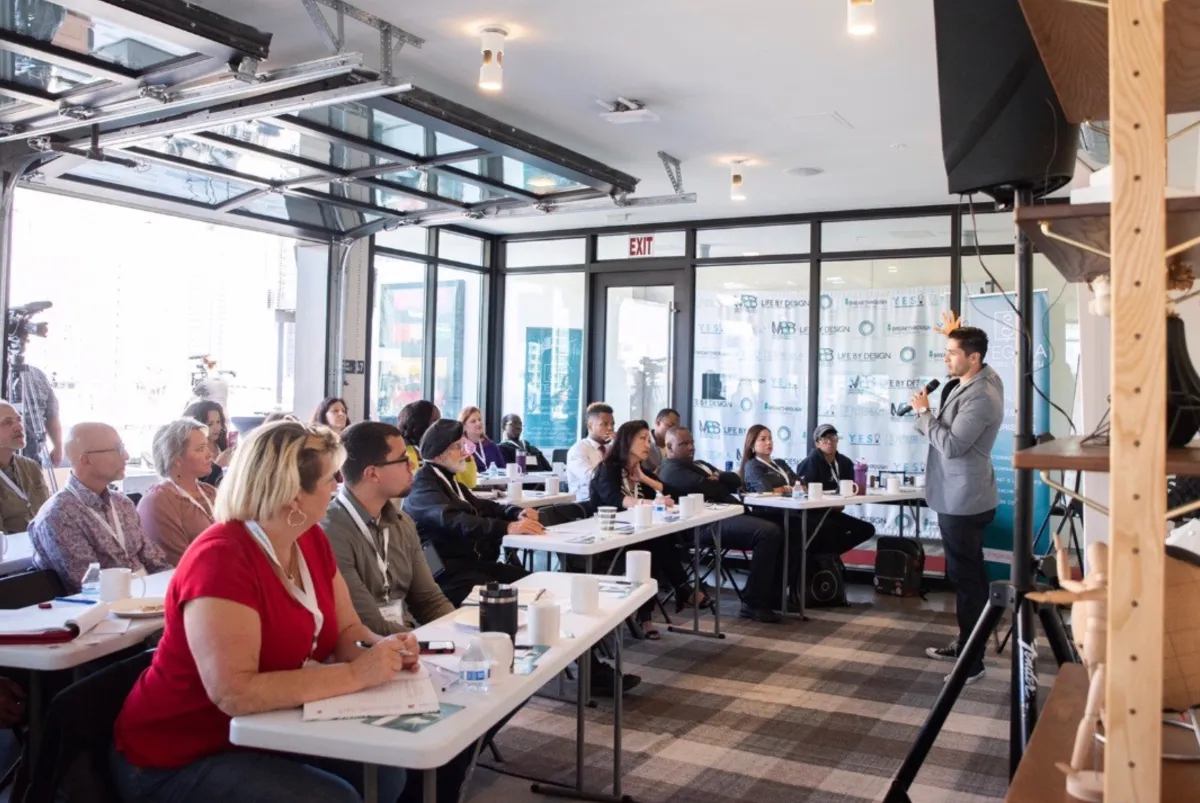
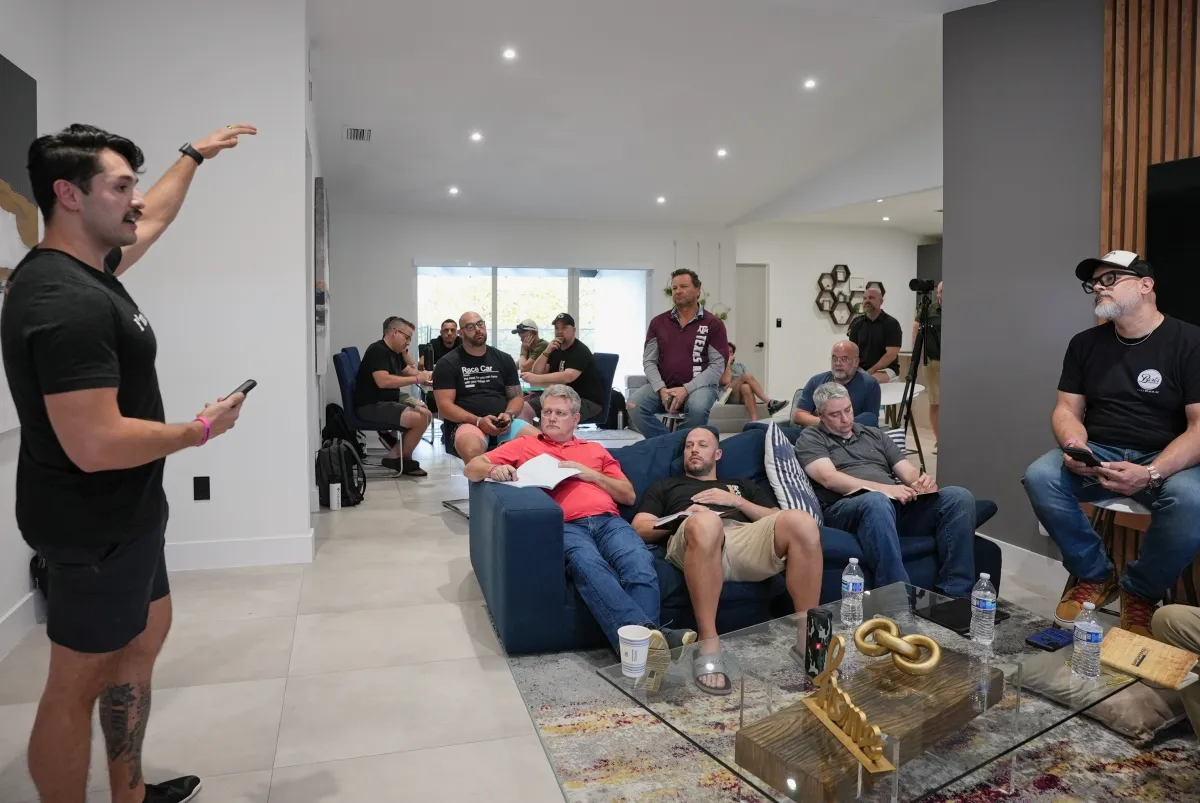
Empowered Man
Joey then joined Empowered Man as the Client Success Director from 2020 to 2023, where he helped over 650 men become better fathers, husbands, and leaders. The program was dedicated to personal growth, improved communication, and strong leadership for men navigating divorce and relationship struggles—saving marriages and transforming families in the process. But Joey knew his work wasn’t finished. He saw a bigger mission—to create a complete transformation system for men, built on behavioral psychology, leadership, and real-world strategies that WORK. That’s when Modern Man Brotherhood & Marriage Breakthrough Method™ was born.
Discover the Proven System That Has Helped 1,100+ Men Take Back Control of Their Relationships and Masculine Leadership
INTRODUCING THE MARRIAGE BREAKTHROUGH METHOD™ MOBILE APP

A step-by-step, proven framework designed for high-achieving men who refuse to settle for mediocrity in their relationships and lives.
This isn’t just about saving your marriage .
It’s about transforming YOU into the kind of man who naturally inspires respect, attraction, and deep connection.
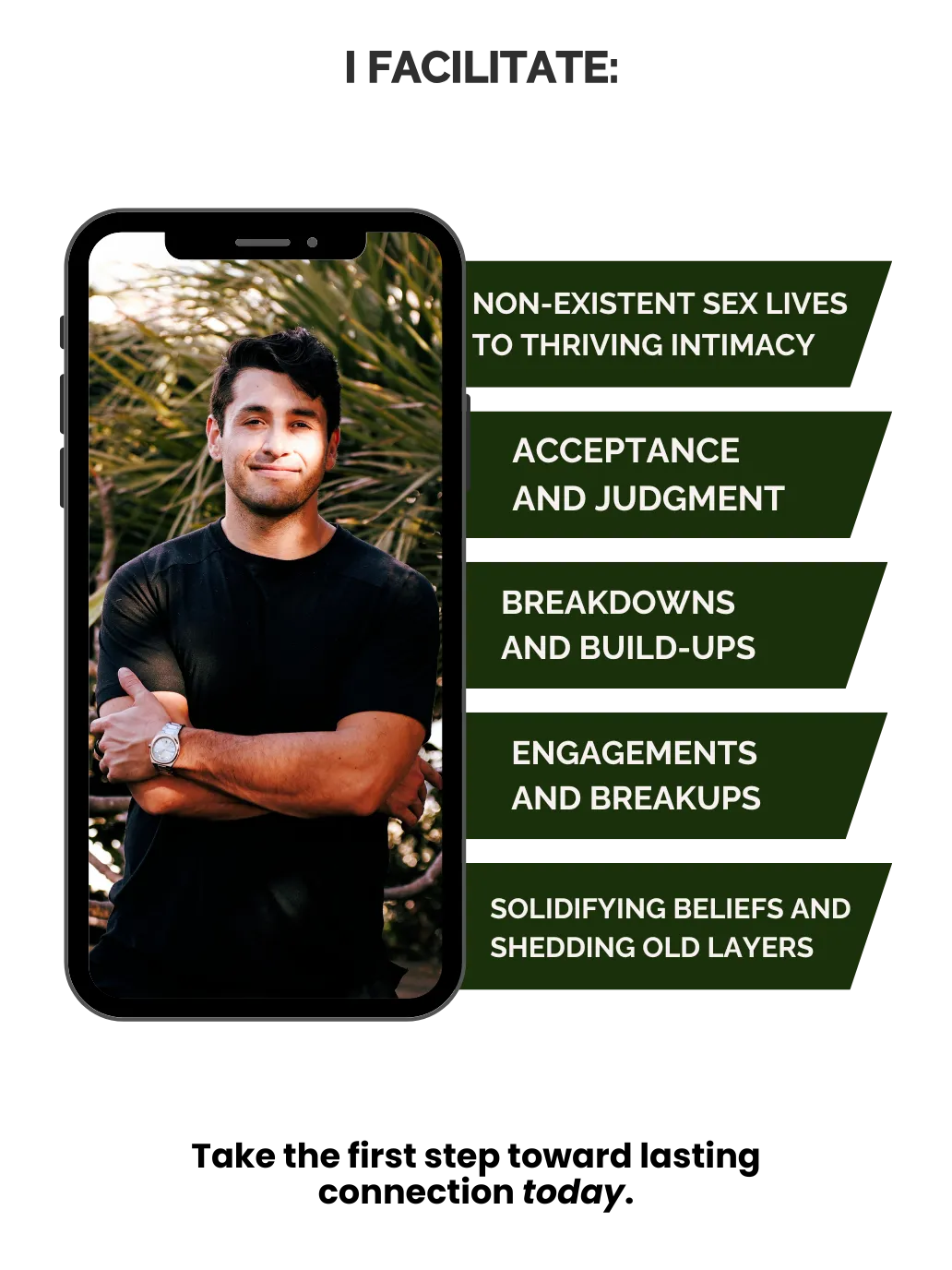
Your career shouldn’t cost you your marriage.
Learn the secrets to having both.

WARNING: Side Effects of Joining This Newsletter Include ...
Laughing at jokes sharper than a dad’s comeback
Re-thinking your relationship and business game entirely
You might even look forward to your inbox (weird, right?)
I Consent to Receive SMS Notifications, Alerts & Occasional Marketing Communication from company. Message frequency varies. Message & data rates may apply. Text HELP to (619)-257-5376 for assistance. You can reply STOP to unsubscribe at any time.
TESTIMONIALS
What others are saying
"I didn’t save my marriage—I rebuilt myself. I’m an entirely new me!"
"A man without direction is like a car without a steering wheel—just drifting. The moment you take ownership of yourself, your emotions, and your leadership, that’s when everything changes. Fill your bucket first, then lead with strength."
- Rob E

"For the first time in a long time, I feel like I’m finally in control—I can breathe again."
"Before you can lead your family, you have to lead yourself. A man running on empty can’t pour into others. Fill your own bucket first—because when you do, you don’t just survive… you lead with strength, clarity, and purpose."
- Brodie L

This space is different because you’re not juggling life while trying to grow—you’re here, fully engaged."
"Transformation doesn’t happen when you’re half in, half out. You have to be fully present, fully committed. No distractions, no ‘video off’—just you, showing up and doing the work."
- Mike & Thuy S.

"I came in lost, ready to walk away. I left with clarity, direction, and a fire to lead."
"Sometimes, you hit a point where you’re ready to throw in the towel—but that’s exactly when the breakthrough happens. This wasn’t just a last-ditch effort; it was the moment everything changed. You don’t just survive… you reclaim your life."
- Matt W.



